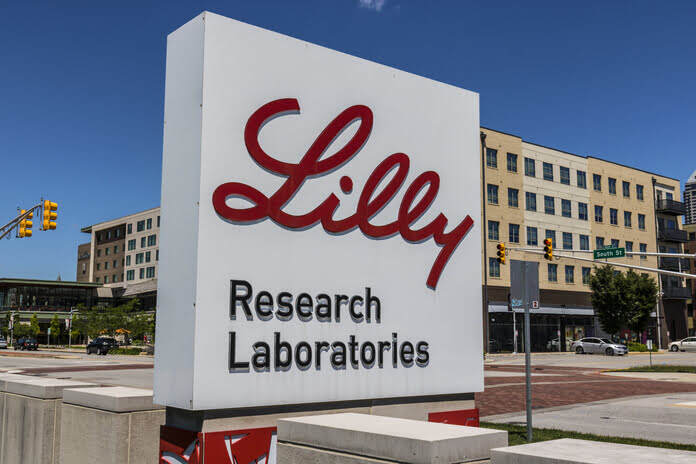Eli Lilly (NYSE:LLY) has reported promising results from its phase III VIVID-1 study, which assessed the effectiveness of its IL-23p19 antibody mirikizumab in adult patients with moderate-to-severe Crohn’s disease (CD).
The VIVID-1 study successfully met its co-primary and all major secondary endpoints. Mirikizumab demonstrated the achievement of clinical remission and endoscopic response in CD patients after a 52-week treatment period, compared to a placebo.
Crohn’s disease is a form of inflammatory bowel disease that can cause inflammation in the digestive tract, leading to symptoms such as diarrhea, abdominal pain, fatigue, and weight loss.
According to Eli Lilly, 51.4% of the study participants who received mirikizumab achieved clinical remission, compared to 19.6% of those who received the placebo. Treatment with mirikizumab also demonstrated non-inferiority compared to J&J’s blockbuster drug Stelara (ustekinumab) for the treatment of CD.
While treatment with mirikizumab did not achieve superiority in the endoscopic response endpoint compared to J&J’s Stelara, the results were noted as “numerically higher” compared to the J&J drug.
Based on these promising results, Eli Lilly plans to submit a regulatory filing with the FDA and other regulatory agencies worldwide next year, seeking approval for mirikizumab in the CD indication.
Eli Lilly’s stock has experienced a 66.9% surge year-to-date, outperforming the industry’s 8.2% growth.
Mirikizumab is already approved in Canada, Europe, and Japan for the treatment of moderately to severely active ulcerative colitis (UC), where it is marketed under the trade name Omvoh. A regulatory filing for the drug in the UC indication is currently under FDA review, with a decision expected by the end of this year.
The market for CD treatments is highly competitive. If approved, Eli Lilly will face strong competition from AbbVie (ABBV), which markets its own drug Skyrizi, using a similar mechanism of action to treat CD. AbbVie’s Skyrizi, a blockbuster IL-23 inhibitor, received label expansion in the United States and Europe for CD last year.
Last month, AbbVie reported positive data from a head-to-head phase III study comparing Skyrizi to J&J’s Stelara in CD. This study achieved all its primary and secondary endpoints, demonstrating Skyrizi’s superiority over Stelara.
In August, AbbVie submitted a regulatory filing with the European Medicines Agency (EMA) and the FDA to seek label expansion for Skyrizi in the UC indication. Aside from CD, Skyrizi is already approved for the treatment of active psoriatic arthritis and moderate-to-severe psoriasis by both of these regulatory agencies.
Featured Image: Megapixl









